Betta fish, also known as Siamese fighting fish, are among the most popular pets for aquarium enthusiasts. Their RGB colors and lively shapes make them their favorite.
But one of the most important aspects of keeping your betta fish healthy and happy is feeding them correctly. So, how often should you feed betta fish? Let’s move on to everything you want to know!
Betta Fish Diet
Natural Habitat and Diet
In the wild, betta fish are found in shallow waters such as rice paddies, ponds, and slow-moving streams in Southeast Asia. Their diet mainly consists of insects, larvae, and other small organisms. This natural diet is high in protein, which is essential for their health.
Types of Betta Fish Food
When it comes to feeding your betta, there are several options available:
- Pellets: These are specially formulated for betta fish and are often the most convenient option. Look for high-quality pellets that contain a good amount of protein.
- Flakes: While flake food is available, it’s generally not the best option for bettas as it can lead to bloating and constipation.
- Frozen and Live Foods: These mimic the natural diet of bettas and include options like bloodworms, brine shrimp, and daphnia. These foods are highly nutritious and are often considered a treat.
How Often to Feed Betta Fish
General Feeding Guidelines
The general rule of thumb is to feed adult betta fish once or twice a day. A small amount of food, typically what they can consume in about 2 minutes, is sufficient. Overfeeding can lead to a variety of health issues, so it’s crucial to be mindful of portion sizes.
Age and Size Considerations
- Adult Bettas: For fully grown bettas, feeding once in the morning and once in the evening is ideal. You miss a day once a week to stop overeating.
- Baby Bettas (Fry): Fry requires more frequent feedings, typically 3-5 times a day, as they are growing and need more nutrition.
Factors Affecting Feeding Frequency
Several factors can influence how often you should feed your betta, including their activity level, water temperature, and overall health. Bettas in warmer water tend to be more active and may require slightly more food.
Best Feeding Practices
Portion Control
Overfeeding is one of the most common mistakes made by betta owners. It’s easy to think that more food equals a happier fish, but this can lead to bloating and other digestive issues. Always measure out small portions.
Feeding Techniques
Consider using a feeding ring to keep the food in one place, making it easier for your betta to eat. This also helps to reduce waste and keep the tank cleaner.
Avoiding Overfeeding
Overfeeding not only affects the fish but can also lead to poor water quality as uneaten food decomposes. Stick to a strict feeding schedule and avoid giving your betta more food if they seem to beg for it.
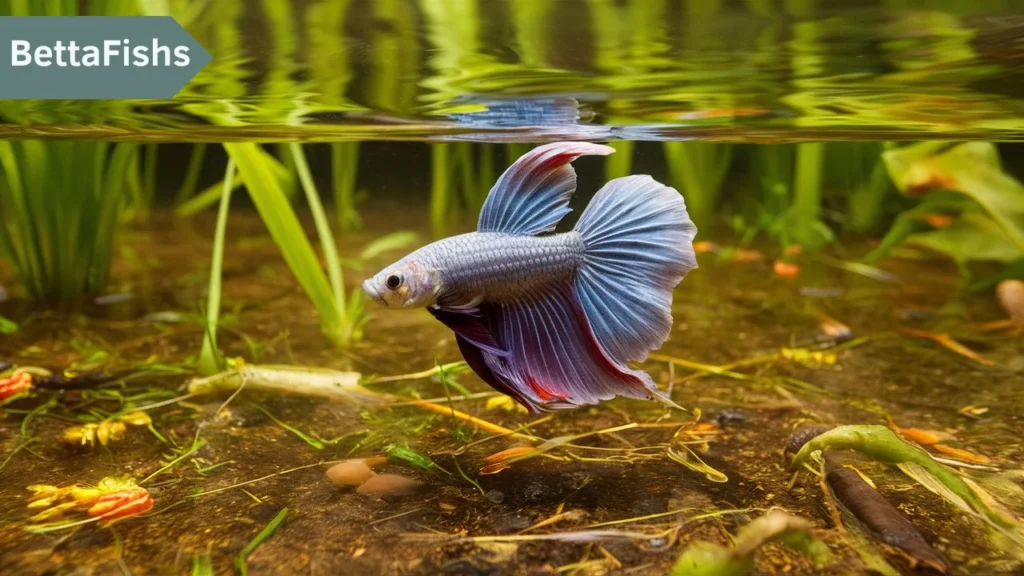
Feeding Schedule Recommendations
Feeding Adult Betta Fish
For adult bettas, a feeding schedule of twice daily is usually sufficient. Morning and evening feedings allow for adequate digestion time between meals.
Feeding Baby Betta Fish
Fry need to be fed more frequently due to their rapid growth. Aim for small, frequent feedings throughout the day. When they grow, their frequency reduces gradually.
Adjusting Feeding Times Based on Activity Levels
If you notice your betta is more active during certain times of the day, you might consider adjusting the feeding schedule slightly to accommodate their energy needs.
Signs of Proper Feeding
Healthy Behavior Indicators
A well-fed betta is active, curious, and displays vibrant colors. They should be eager to eat when food is offered but not aggressively so.
Physical Appearance
Look for a slightly rounded belly after feeding but avoid any signs of bloating. The fins should be spread out, and the scales should appear smooth and shiny.
Waste Production
Healthy bettas produce regular, solid waste. If you notice a change in the frequency or appearance of waste, it may be a sign of overfeeding or a digestive issue.
Risks of Improper Feeding
Overfeeding and Its Consequences
Overfeeding can lead to obesity, bloating, and swim bladder disease, which affects the fish’s ability to swim properly. It can also result in poor water quality, which can harm your fish.
Underfeeding and Malnutrition
Underfeeding, on the other hand, can lead to malnutrition, stunted growth, and a weakened immune system. It is compulsory to maintain the required balance.
.
Dealing with Feeding-Related Health Issues
If you suspect your betta is suffering from a feeding-related issue, it’s important to adjust their diet immediately. Fasting for a day or two can help relieve symptoms of overfeeding.
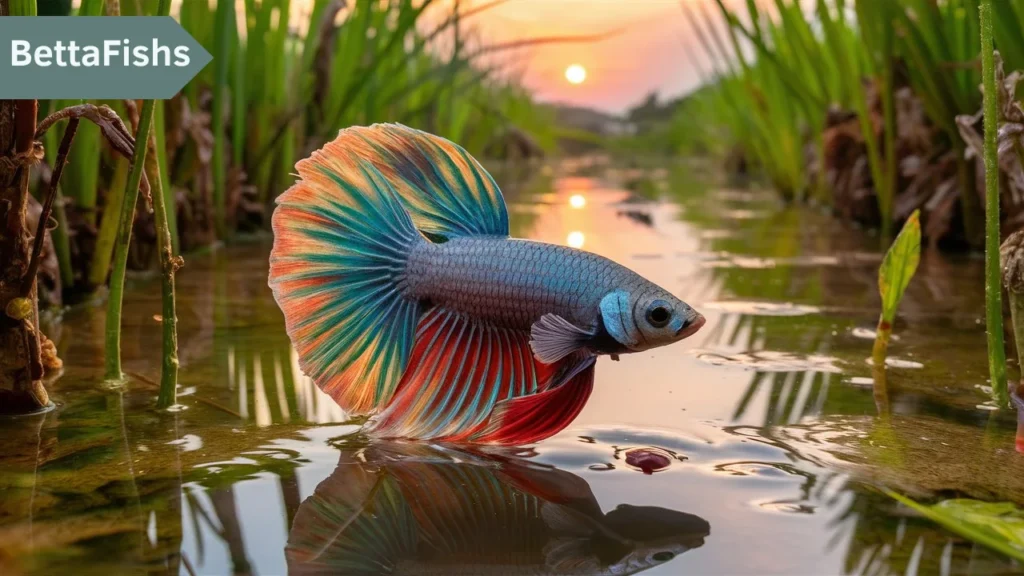
Special Considerations
Feeding During Illness
If your betta is sick, they may not be as interested in food. In such cases, try offering live or frozen foods to stimulate their appetite. Always consult with a vet if your betta refuses to eat for more than a few days.
Fasting and Rest Days
Incorporating a fasting day once a week can be beneficial for your betta’s digestive system. This helps to prevent bloating and keeps their digestive tract functioning smoothly.
Feeding in Community Tanks
If you have your betta in a community tank, be mindful of the feeding dynamics. Bettas can be territorial, so ensure they are getting enough food without overfeeding the other fish.
Conclusion
Feeding your betta fish properly is key to ensuring they live a long, healthy life. By understanding their dietary needs and following a consistent feeding schedule, you can avoid common pitfalls like overfeeding or underfeeding. Remember to monitor your betta’s behavior and appearance regularly, adjusting their diet as needed to keep them in peak condition.
FAQs
How Can I Tell if My Betta Fish is Hungry?
A hungry betta may become more active and start swimming near the surface or where they are usually fed. However, don’t confuse this with begging behavior; stick to your feeding schedule.
What Should I Do if My Betta Fish Refuses to Eat?
If your betta refuses to eat, first check the water conditions, as poor water quality can lead to loss of appetite. Try offering different types of food or consult a vet if the issue persists.
Can Betta Fish Eat Human Food?
It’s not recommended to feed betta fish human food, as it can cause digestive issues and lacks the necessary nutrients they need.
How Long Can Betta Fish Go Without Food?
Bettas can typically go up to 14 days without food, though this is not ideal. It’s best to feed them regularly to avoid stress and health issues.
Is It Okay to Feed Betta Fish Once a Day?
Yes, feeding your betta once a day is acceptable, though twice daily in smaller portions is often better. It’s important to avoid overfeeding in a single meal.


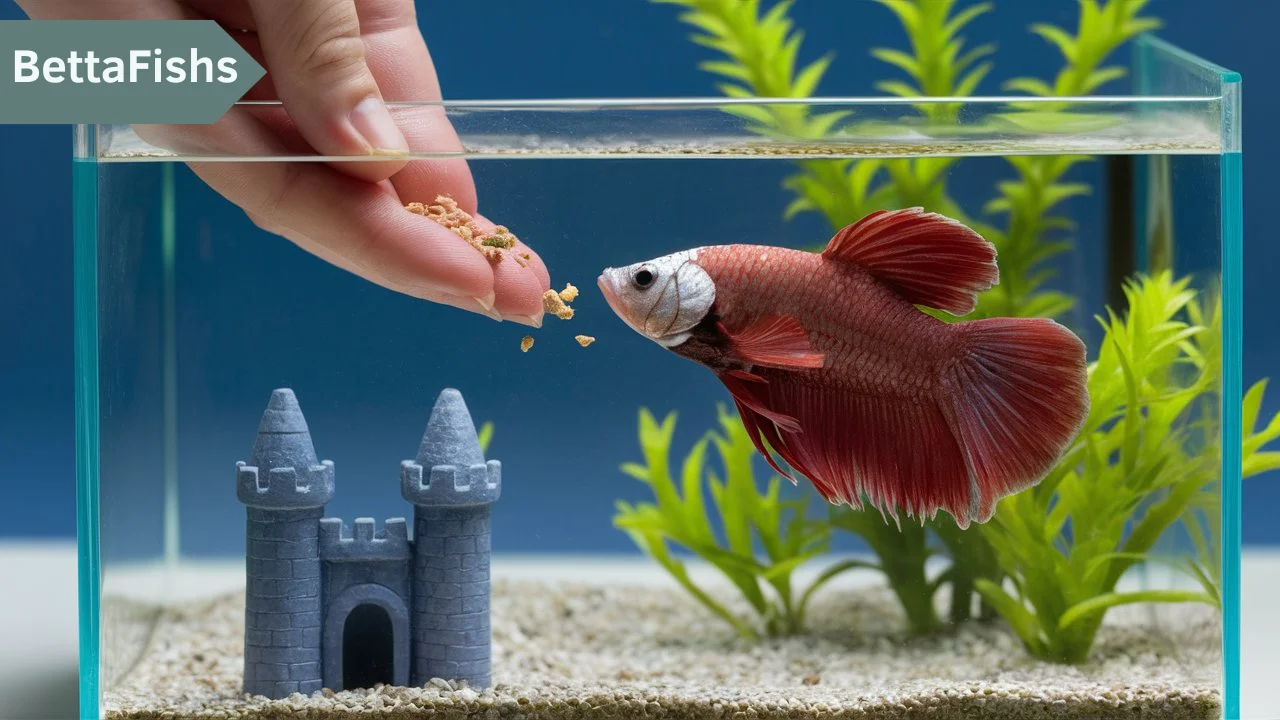
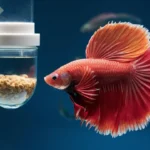
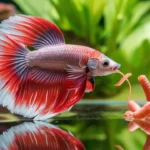
3 Comments
Leave a Reply3 Pings & Trackbacks
Pingback:how to feed betta fish while on vacation?
Pingback:How Often Should You Feed a Betta Fish Bloodworms?
Pingback:How often to feed Betta fish pellets?